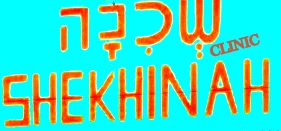Shekhinah Clinic
The History
Shekhinah Clinic for the Poor and Destitute was officially established in March 1991. However, the first operation was carried out under a mango tree in November 1989, in front of what was to become the first clinic. Construction of the clinic began in February 1990 and its operating theatre was finished by April 1991.
The idea of services to the poorest of the poor, purely for love of God and neighbour was born out of David Fuseini Abdulai’s search of happiness and contentment in life. He was born in 1951 to a father with leprosy and a mother who due to circumstances was an occasional beggar. The late Dr Abdulai was the only surviving child out of 11 siblings, the rest succumbed to hunger and poverty-related diseases – measles, diarrhoea, nutritional anaemia etc and made it out of their childhood.
The late Dr Abdulai was enrolled in school by a grand-uncle who was also a chief in December 1956 but dropped out and turned to the streets in 1960 when the chief died. Fortunately, a catholic priest, Father Alfred Bayor, re-enrolled him in school and he had to repeat Class 4 in 1961. Various individuals seeing the late Dr Abdulai potential took him under their wings, ranging from friends, family friends, teachers, to kind-hearted acquaintances etc – including a British lady, Janet Margaret Hall and in September 1966 he was able to continue his education. These divine interventions and his hard work gave him the opportunity to attend Tamale Secondary School. Additionally, throughout his secondary education, these individuals assisted him by providing him with food, books, uniform and lodging.
Dr Abdulai was accepted into medical school in 1973, reflecting on his upbringing and his own experiences with poverty, his dependence on others for survival and his education. As well as his struggles through medical school, Dr Abdulai reached the conclusion that he wanted to spend his life as a physician who helped the less-fortunate in society, if ever at all possible. He also firmly believed that his goals were the only way, he would achieve his personal fulfilment in this life.
After graduating as a medical doctor in 1979, David’s dreams of helping the poor like himself were intensified. In 1980, while working as a House Officer in surgery at 37 Military Hospital in Accra, Ghana, he envisioned himself running a hernia clinic for the poor. He, however, needed enough experience to realise his dream and it took eleven years for this to happen. During this time he worked in various healthcare facilities. It included Bator Catholic Hospital; Tamale Regional Hospital (now Tamale Teaching Hospital); West Gonja Hospital, Damongo. He also spent time in the United Kingdom obtaining post-graduate Diploma in Tropical Medicine (1985); a two-year duty tour in Zambia for more surgical experience (1986-87); two-year administrative experience as District Medical Officer (now District Director of Health Services, 1989-91); a stint in Austria to learn eye surgery and finally in 1991, he opted to devote himself to the less-fortunate, depending absolutely and unconditionally on Divine Providence. David did his first operation under a mango tree where the Shekhinah Clinic at Gurugu presently stands.
In 1988 David got closer to Father Herbert Herrity, a Scottish Catholic priest he had known from a distance for years in Tamale. Father Herrity became a spiritual mentor in David’s life and a co-founder of the Shekhinah Clinic. It was Father Herrity who gave the name “Shekhinah” (meaning Divine Presence) to the clinic and all our services to the poor. He died in May 2000, nine years after he and David prayed together and opened the Clinic’s doors to the poor and destitute. To date (2016), these doors have never been closed in the 25 years of services.
Dr Abdulai was married in 1980 and had four children but the marriage did not survive the stress of his way of life, as hard as his wife tried. It ended in 2007 and David married Mariama, his current wife and they have four children aged between one and seven years. Mariama, like David, is deeply fulfilled by these services to the poorest of the poor. Though a graduate of the University of Development Studies, she has also opted completely to dedicate herself to the poor, declining to take up offers of very lucrative jobs of her own free will. She is now the mother of us all in the clinic.



